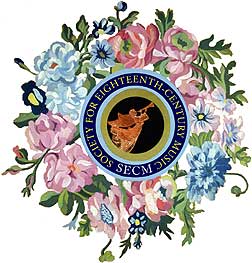Society for Eighteenth-Century Music
“Above all, music must move the heart…” C. P. E. Bach
The purpose of the Society for Eighteenth-Century Music is to promote the study and performance of music of the eighteenth century. The Society provides a forum where scholars and performers can further their knowledge of music, history and interrelated arts of the period and serves as a resource to facilitate and encourage collaboration.
The Society for Eighteenth-Century Music (SECM) and Divino Sospiro-Centro de Estudos Musicais Setecentistas de Portugal (DS-CEMSP) will jointly sponsor “Transnational musical and theatrical influence in the 18th-century Atlantic world,” a conference to be held in Lisbon Portugal at the Mafra National Palace in collaboration with the National Music Museum.
Home Page | Program | Registration Rates and Deadlines | Travel and Accommodations | Registration
The American Bach Society is inviting individual paper proposals for its upcoming meeting, “Celebrating Bach,” which will take place October 1–4, 2026 at Baldwin-Wallace University (Berea, OH). Proposals are due by January 15, 2026. Please visit their website for more information.
For more information about Encounters with Eighteenth-Century Music, a virtual forum sponsored by SECM and four other societies, please visit our website.
The Society for Eighteenth-Century Music is pleased to provide two resources for the teaching of eighteenth-century music: DEIB Teaching Resources for Music and Musical Examples by 18th-century BIPOC Composers. These resources promote diversity, equity, and belonging and we hope they will expand the ways we teach and think about eighteenth-century music.
